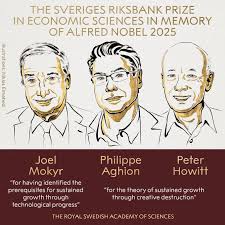The Impact of Joel Mokyr on Economic History

Introduction
Joel Mokyr, a prominent economic historian, has revolutionised the way we understand the role of innovation in economic development. His contributions significantly shape our comprehension of the Industrial Revolution and the technological advancements that have shaped modern economies. As the relevance of Mokyr’s work continues to grow amid ongoing discussions about innovation and economic policy, understanding his theories can provide valuable insights for both scholars and decision-makers.
Key Contributions
Mokyr is best known for his research on the relationship between culture and technology. In his critically acclaimed books, such as “The Lever of Riches” and “The Enlightened Economy”, he argues that knowledge and social attitudes play crucial roles in the ability of societies to innovate. Mokyr challenges the traditional views of economic growth by emphasising that cultural factors, like the value placed on education and innovation, significantly impact a nation’s prosperity.
His 2016 work, “A Culture of Growth”, further solidifies Mokyr’s stance on the significance of the Enlightenment period. He details how intellectual advances from this era sparked unprecedented levels of technological growth, propelling Western economies into new heights of productivity and wealth.
Current Relevance
In today’s rapidly evolving economic landscape, Mokyr’s insights are more pertinent than ever. As nations grapple with the implications of the Fourth Industrial Revolution, which includes advances such as artificial intelligence and renewable energy technologies, policymakers seek to cultivate environments conducive to innovation. Mokyr’s theories suggest that fostering a culture of intellectual curiosity and scientific inquiry could be key to successfully navigating these changes.
Moreover, as global economies strive to recover from the disruptions caused by the COVID-19 pandemic, understanding the historical context of innovation can help leaders formulate strategies that promote growth and resilience in their respective nations. Mokyr’s work thus serves as a guide for countries aiming to create a sustainable and inclusive future.
Conclusion
Joel Mokyr’s profound contributions to economic history highlight the often-overlooked factors that contribute to innovation and economic growth. By framing economic advancement as a byproduct of cultural and intellectual atmospheres, Mokyr challenges both scholars and policymakers to consider how non-economic variables influence prosperity. As we look to the future, the significance of his work will only continue to grow, reminding us that fostering a culture of innovation remains as vital today as it was during the Enlightenment.
